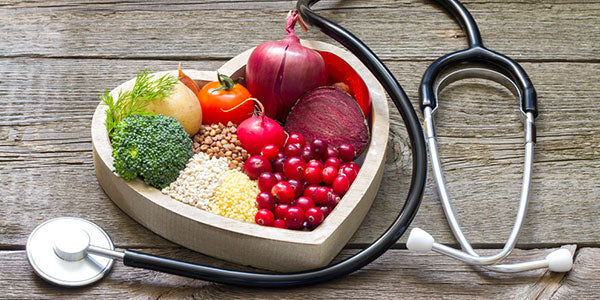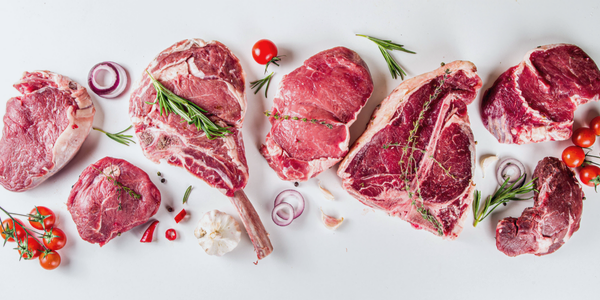
We eat for pleasure and health. But when it comes to health, there is a wide variety of foods that compliment specific body processes. The body yearns for protein to maintain and build muscle and preserve lean body mass, craves carbohydrates for brain fuel and energy, and longs for fat to keep vital organs protected and hormones productive. So when it comes to the cardiovascular system, what are the best foods for your heart?
8 Phenomenal Foods for Your Heart
1. Oats
Oats are a breakfast powerhouse and a significant source of fiber. Not only can fiber contribute to bowel health, consuming oats can reduce cholesterol levels. Oats specifically contain soluble fiber, one of the two types of fiber that can actually absorb cholesterol in the body and excrete it, thus reducing total cholesterol.
2. Bell Peppers
Red, yellow, and orange aren't just vibrant colors to make a meal plate more attractive. The lively colors from bell peppers provide carotenoids, naturally occurring pigments found in plants. Additionally, carotenoids act as antioxidants. A diet rich in antioxidants is linked to a total reduction in the risk and development of cardiovascular disease.
3. Nuts
Despite the high fat content of nuts, they are considered to contain "good" fats, specifically known as unsaturated fats. Unlike saturated and trans fats that are shown to increase the risk of heart disease, mono- and polyunsaturated fats have been revealed to lower the risk. Although they are considered a "healthy" fat, their intake should still remain in moderation to keep calories from fat in check. BistroMD recommends keeping your intake of fats between 20-25% of total calories per day.
4. Sunflower Seeds
Vitamin E is abundant in sunflower seeds. Evidence has associated vitamin E intake with its ability to lower the risk of coronary artery disease (CAD), the most common type of heart disease. CAD develops when blood vessels become damaged, typically by cholesterol-containing plaque. Plaque buildup can lead to a decreased blood flow or a complete blockage in an artery, ultimately triggering a heart attack. Contrarily, vitamin E supplementation might be association with an increased risk of heart failure and stroke. The American Heart Association recommends consuming the antioxidant-containing foods over a vitamin E supplement.
5. Berries
In a wide variety of studies, berries have been coined as an essential fruit group for promoting heart health. Data attributes heart health to berries' anthocyanin, micronutrient, and fiber contents. Specifically, studies made notable reference to chokeberries, cranberries, blueberries, and strawberries in the forms of fresh, freeze-dried, and juice products.
6. Fish
Specifically, oily fish can support heart health attributed to its omega-3 fatty acid content. Omega-3 fatty acids are a type of polyunsaturated fat, recognized as a "good" fat. Typically, it is recommended that salmon, mackerel, herring, and lake trout are consumed at least twice a week rather than supplementing with fish oils related to potential side effects. Fish oil supplements may cause nausea and diarrhea, create a fishy taste in the mouth, reduce the ability of natural blood clotting abilities, and increase total calories.
7. Grapes
Resveratrol and flavonoids are noted antioxidants found in grapes, primarily found in the skins, stems, leaves and seeds rather than the pulp. Furthermore, consuming a whole grape provides fiber unlike wine and grape juice. Its wine and grape juice counterparts may offer benefits as well, despite their lack of skin and seeds like the whole fruit can offer.
Yet, the combination of antioxidant-properties and fiber make grapes an excellent heart healthy food. Purple and dark red grapes also tend to be higher in antioxidant properties compared to green grapes.
8. Sweet Potatoes
Along with the antioxidant-richness of sweet potatoes related to its beta-carotene content (the natural pigment found in primarily orange foods and converted to vitamin A in the body), they are also a worthwhile source of potassium and vitamin B6.
Potassium is helpful to the heart as it can lower blood pressure and regulate heartbeats and rhythms. Research has shown people who do not have enough B6 in their diet are at higher risk of developing heart disease, although the exact mechanism is not exactly known. One possible explanation is related to homocysteine, an increased risk factor of developing heart disease when levels are high. Vitamin B6 helps to lower homocysteine in the blood.
It is imperative to understand there is not one single food that can tackle and reduce heart disease single-handedly. Instead, embrace a well-balanced diet rich in fiber and antioxidants. Whole grains, fruits, vegetables, nuts and seeds, and fish are some key heart-healthy foods. Additionally, lowering and limiting sodium intake can reduce blood pressure, especially if high blood pressure or hypertension is at risk or diagnosed.
References: Saremi A, Arora R. Vitamin E and cardiovascular disease. American Journal of Therapeutics. 2010;17(3):56-65. Vitamin B6 (Pyridoxine). University of Maryland Medical Center. Available at: http://umm.edu/health/medical/altmed/supplement/vitamin-b6-pyridoxine







